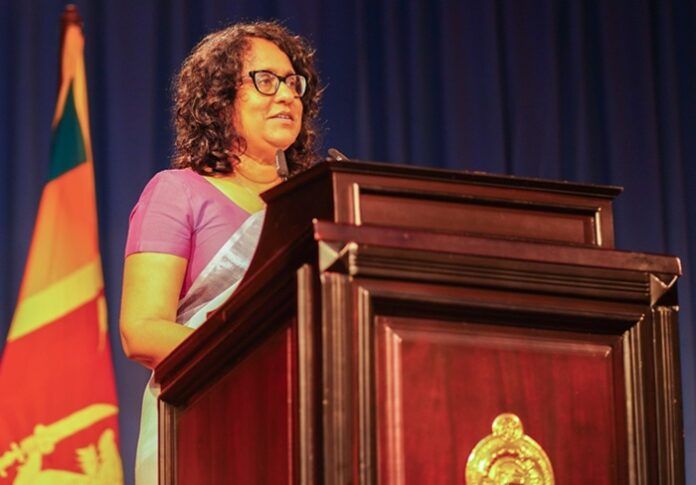Prime Minister Dr. Harini Amarasuriya stated that the highest allocation for education in Sri Lanka’s history has been made in the 2026 budget, enabling the government to formulate policies, plans, and institutional structures needed for the sector. She emphasized, however, that financial allocations alone are insufficient without a strong institutional framework to support effective policy implementation.
Speaking in Parliament during the debate on the budget allocation for the Ministry of Education, Higher Education and Vocational Education, the Prime Minister highlighted the importance of sound educational policies. She said that a quality education system depends on the integration of well-designed policies, robust institutional structures, and adequate financial support. The prolonged failure to meet these three essential requirements, she noted, has contributed to the challenges currently facing the education sector. Despite this, the commitment of teachers, principals, and education officials has helped maintain overall quality.
Dr. Amarasuriya further noted that one of the key achievements in 2025 was the strengthening of decision-making processes within the sector by identifying institutions, addressing structural shortcomings, aligning them with policy frameworks, and ensuring that financial allocations matched policy priorities. These measures formed part of the preparatory work for major reforms scheduled to begin in 2026. She stressed that formulating policies must be accompanied by proper planning and clear targets for officials, pointing out that although successive governments introduced various education policies, significant curricular reforms failed due to weak planning, inadequate institutional structures and insufficient financial support.
The Prime Minister stated that the Ministry of Education focused its 2025 initiatives on four core areas: promoting equity, enhancing quality, strengthening governance, and formulating evidence-based policies through data-driven analysis. She expressed satisfaction that policies, plans, and institutional frameworks were developed around these four pillars. Referring to the report on the Gampaha Wickramarachchi University of Indigenous Medicine, she said past decision-making had deteriorated due to personal interests and political agendas overriding proper principles and policies, undermining university standards and causing injustice to students. Similar structural weaknesses had affected many institutions across the sector, she added, noting that the government took steps in 2025 to correct these shortcomings.
Dr. Amarasuriya said that Rs. 7.04 billion—equivalent to 2.04% of GDP—has been allocated for education in the current budget, the highest allocation in many years. She reiterated that the government does not claim it will reach the 6% of GDP benchmark within the first year, adding that achieving this target requires strong policies and strengthened institutions. Allocating funds alone, she said, is not enough; spending must be aligned with policy priorities and institutional capacity.
Additionally, Rs. 3,000 million has been allocated for education reforms, under which current initiatives are being implemented. The Prime Minister noted that the 2025 budget was passed at the end of April and expenditure commenced in May. Financial progress stood at 18% at the time, rising to 69% by December—an improvement in efficiency not previously seen in the education sector. She attributed this progress to clear targets for officials, close monitoring and strengthened accountability, and expressed confidence that even greater progress would be achieved in 2026 and 2027.
Acknowledging that challenges remain, Dr. Amarasuriya said the sector continues to advance while addressing longstanding weaknesses. She emphasized the need for further enhancement of efficiency and stressed the importance of taking prompt, effective action when issues arise in schools or universities. She underscored the importance of responsibility, systematic planning, strong policy formulation and steady, consistent progress.
